Buy Invirase : Saquinavir 200 mg Capsules Online
$146.43
Brand Name : Invirase
Composition : Saquinavir
Manufactured by : Roche Holding AG
Strength : 200 mg
Form : Capsules
Packing : Pack of 270 Capsules
Prescription Required *
Invirase (Saquinavir) is an antiretroviral medication used for the treatment of HIV-1 infection. It is a protease inhibitor that works by blocking the activity of an enzyme called HIV protease, which is necessary for the replication of the virus. Invirase helps to prevent the virus from spreading and multiplying in the body, which helps to slow down the progression of HIV infection.
Composition:
Invirase contains Saquinavir as its active ingredient. Each capsule contains 200 mg of Saquinavir.
Uses:
Invirase is used for the treatment of HIV-1 infection in combination with other antiretroviral medications. It is used in adult patients who have received prior antiretroviral therapy but have not achieved adequate response to other medications. Invirase is used as a second-line or later treatment option.
Usage and Dosage:
Invirase should be taken orally with a meal to increase absorption. The recommended dosage of Invirase for adult patients is 1000 mg (5 capsules) twice daily in combination with low-dose Ritonavir. Dosage adjustments or discontinuation may be needed based on the patient’s response and tolerance to the medication.
Storage Conditions:
Invirase should be stored at room temperature, away from direct sunlight, heat, and moisture. Keep the medicine out of the reach of children and pets.
Mechanism of Action:
Saquinavir blocks the activity of HIV protease, an enzyme necessary for the cleavage of viral polyproteins into functional proteins. By inhibiting HIV protease, Saquinavir prevents the maturation of new virions and inhibits the spread of the virus in the body.
Contraindications:
Invirase is contraindicated in patients who are allergic to Saquinavir or any other ingredients of the medication. It is also contraindicated in patients with severe liver or kidney disease, heart rhythm problems, and in patients taking certain medications that may interact with Invirase.
Interactions:
Invirase may interact with other medications, including certain antibiotics, antifungal medications, antidepressants, and anticoagulants. Patients should inform their healthcare provider about all medications they are taking before starting the treatment with Invirase.
Side Effects:
Common side effects of Invirase include nausea, diarrhea, vomiting, abdominal pain, headache, fatigue, and skin rash. Serious side effects may include liver problems, heart rhythm problems, bleeding disorders, and high blood sugar. If any of these side effects occur, patients should contact their healthcare provider immediately.
Be the first to review “Buy Invirase : Saquinavir 200 mg Capsules Online” Cancel reply
Related products
HIV / AIDS


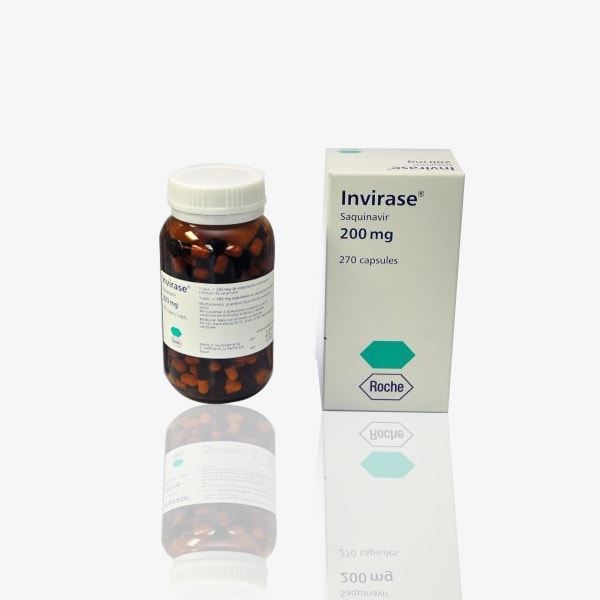
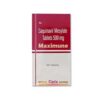


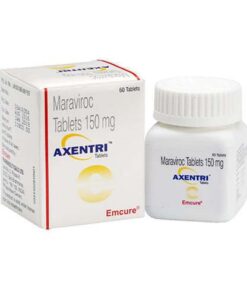


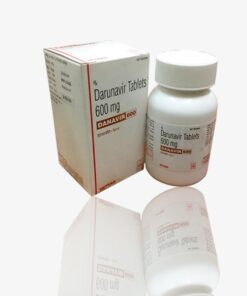

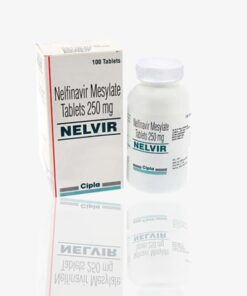

Reviews
There are no reviews yet.